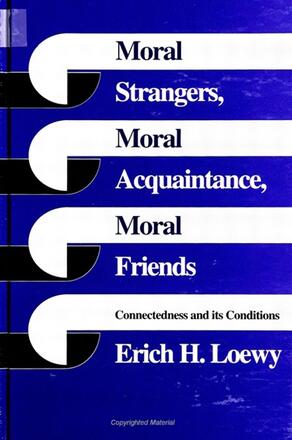
Moral Strangers, Moral Acquaintance, and Moral Friends
Connectedness and its Conditions
Alternative formats available from:
Elaborates an ethic in which beneficence on a personal and communal level has moral force; proposes the idea of an interplay between compassion and reason to help address moral problems; and sketches the conditions necessary for a democratic approach to such problems.
Description
The author deals with the problem of shaping a more than minimalistic ethic in a pluralistic world. He discusses the notions of various types of moral valuing and the idea of a homeostatic balance between the demands of individuals and the requirements of community. He also proposes an idea of an interplay between compassion and reason which can help address moral problems; and, lastly, he sketches the necessary conditions for a democratic approach to such problems.
Erich H. Loewy is Professor and Endowed Alumni Chair of Bioethics, University of California—Davis. He is the author of Suffering and the Beneficent Community: Beyond Libertarianism and Freedom and Community: The Ethics of Interdependence, also published by SUNY Press.
Reviews
"This book addresses an essential theme in bioethics and ethics, namely, the different obligations to moral strangers, acquaintances, and friends. As such, it goes to the heart of the nature of obligations that are properly termed ethical and represents a telling criticism of a major line of thinking in this area. " — George J. Agich, Southern Illinois University School of Medicine
"The author develops an interesting and original analysis of social relationships. His explication and application of Rousseau's works to the subject is most helpful. His examples, especially those from his personal experience, clarify his points, accentuate their importance, and animate the text. There are few books that cover this broad territory with such philosophical scholarship, sophistication, and depth. " — Chris Hackler, University of Arkansas for Medical Sciences